Did the richest men in the world get to the top by chance? Of course not!
But they know what you don't, which is why they are where they are. Today we're going to reveal what you don't know about wealth and prosperity.
The first point is Discover what's stopping you from being rich and prosperous. Here's a free test with instant results and no need to enter your email address.
Find out what you Prevents you from being Rich and Prosperous. Start Living in Abundance Today.
💡 I don't need email. No investment. Just get started.
Second point. Their trajectory is marked by bold strategies, a vision of the future and an entrepreneurial mindset that has placed them above the average. Take the Entrepreneurship Testit's free!
Third point. They have a strong personality profile that doesn't let them down, despite difficulties and momentary defeats. Do Personality TestIt's free to take a look at the 16 personalities and find out which one is yours.
Now that you know what stops you from being rich and prosperous, you've assessed your entrepreneurial profile and you know what your outstanding personalities are that set you apart from the rest, let's analyze the lessons we can learn from the planet's greatest billionaires and how to apply these strategies to building your own financial empire.
Here are the richest men in the world, with their respective fortunes. With each story, there are valuable lessons about business vision, innovation and how to gain wealth intelligently.
Find out what you can learn from these leaders.
| Name | Current fortune ($ billion) | Country |
|---|---|---|
| Elon Musk | 349 (-$8.58B) | United States |
| Mark Zuckerberg | 237 (+$5.55B) | United States |
| Jeff Bezos | 235 (+$1.22B) | United States |
| Bernard Arnault | 195 (+$3.43B) | France |
| Larry Ellison | 193 (+$2.80B) | United States |
| Bill Gates | 166 (-$464M) | United States |
| Larry Page | 156 (-$2.16B) | United States |
| Warren Buffett | 155 (-$1.87B) | United States |
| Sergey Brin | 147 (-$2.02B) | United States |
| Steve Ballmer | 140 (+$559M) | United States |
| Michael Dell | 118 (+$3.76B) | United States |
| Jim Walton | 118 (-$1.49B) | United States |
| Rob Walton | 116 (-$1.45B) | United States |
| Jensen Huang | 112 (+$3.87B) | United States |
| Amancio Ortega | 109 (+$1.25B) | Spain |
| Mukesh Ambani | 84.9 ($0) | India |
| Carlos Slim | 82.6 (+$478M) | Mexico |
| Gautam Adani | 65.4 ($0) | India |
| Changpeng Zhao | 68.5 (+$2.42B) | Canada |
Source: Bloomberg Billionaires Index (February/2025).
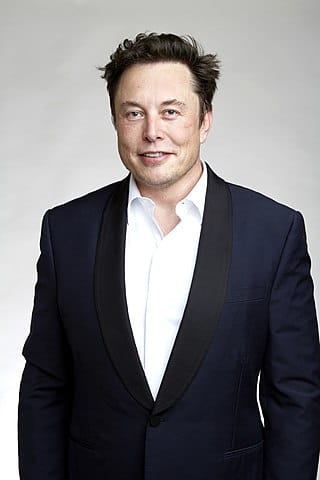
Elon Musk is a South African entrepreneur and inventor, founder of SpaceX and CEO of Tesla.
Born in 1971, Musk stood out for his technological innovations, such as electric cars and private space exploration.
He also founded PayPal and invested in companies such as Neuralink and The Boring Company. He is considered one of the most influential figures of the 21st century.
Elon Musk, founder of revolutionary companies like Tesla and SpaceX, is an example of futuristic thinking.
Its ability to invest in new technologies, such as electric cars and space travel, teaches us the importance of betting on innovative ideas.
Musk also shows us that failure is a natural part of success, as it is seen as a learning opportunity.
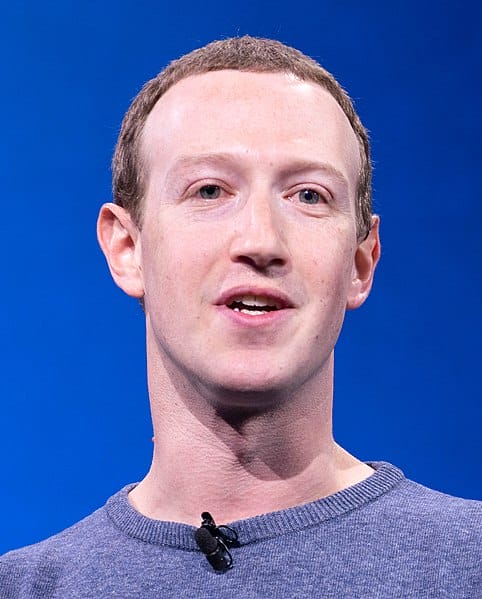
Mark Zuckerberg is an American entrepreneur and programmer, co-founder and CEO of Facebook, now part of Meta.
Born in 1984 in New York, Zuckerberg created Facebook in 2004 while studying at Harvard, transforming the platform into the world's largest social network.
He also leads initiatives such as Instagram, WhatsApp and Oculus.
With his vision of connecting the world, Zuckerberg is one of the most prominent figures in the technology sector.
Mark Zuckerberg has turned Facebook into a global empire.
His career teaches us about the importance of long-term vision and adaptation.
Focusing on a social network that connects billions of people around the world is a clear example of how understanding market needs and constantly innovating is crucial to business success.
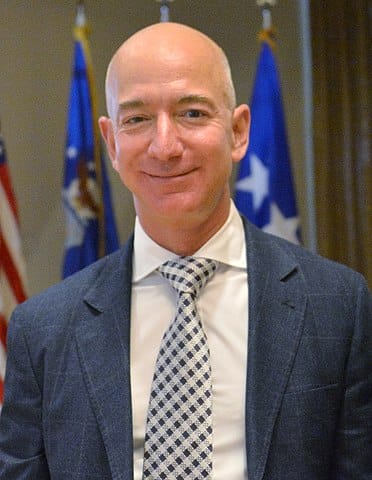
Jeff Bezos is an American businessman and founder of Amazon, one of the world's largest online retailers.
Born in 1964 in Albuquerque, Bezos created Amazon in 1994, initially as a virtual bookstore, expanding into an e-commerce, cloud services and digital media giant.
He also founded the aerospace company Blue Origin. Bezos is one of the richest people in the world and one of the most influential figures in the technology sector.
Jeff Bezos built Amazon, one of the largest e-commerce companies in the world.
His "customer obsession" approach and long-term vision teach us the importance of focusing on consumer needs and investing in the future.
The Amazon has become an example of how a strategic vision can transform global trade.
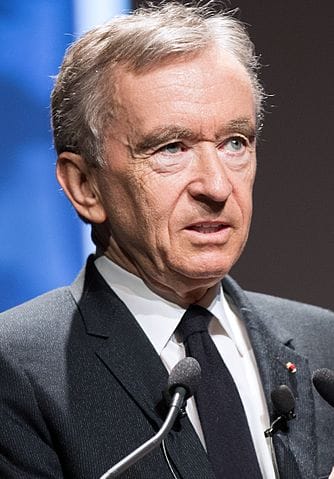
Bernard Arnault is a French businessman, chairman and CEO of LVMH, the world's largest luxury conglomerate.
Born in 1949 in Roubaix, Arnault has transformed the group, which includes brands such as Louis Vuitton, Dior and Moët & Chandon, into a global powerhouse.
With his strategic vision and focus on luxury, he has become one of the richest men in the world and a benchmark in the fashion and luxury goods sector.
Bernard Arnault led the LVMH luxury empire.
His ability to consider and cultivate luxury brands is a lesson in how quality and branding are fundamental to creating a legitimate legacy.
Arnault teaches us the importance of exclusivity and excellence in the market.
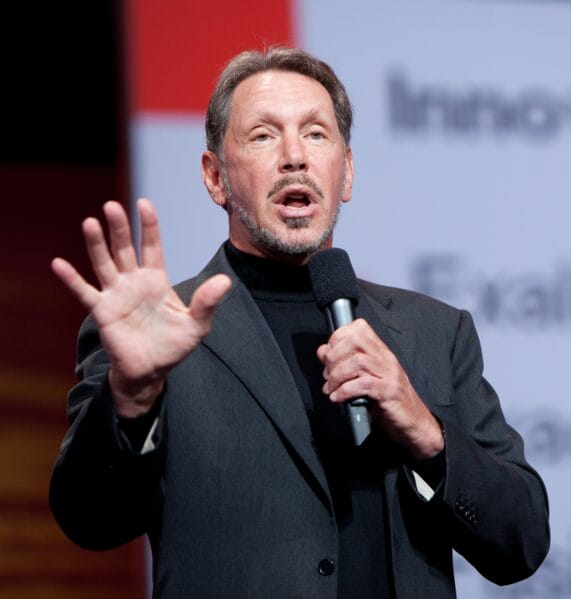
Larry Ellison is an American businessman, co-founder and former CEO of Oracle, one of the world's largest software companies.
Born in 1944 in New York, Ellison has led Oracle since it was founded in 1977, transforming it into a technology giant specializing in databases.
He also has investments in other areas, such as sports and real estate, and is one of the most influential figures in the technology sector.
Larry Ellison co-founded Oracle, a software and technology solutions giant.
His story demonstrates the importance of innovation in the technology sector and how a good strategy can consolidate a company in the global market.
The perseverance and vision to create solutions that solve specific problems are fundamental to Ellison's legacy.
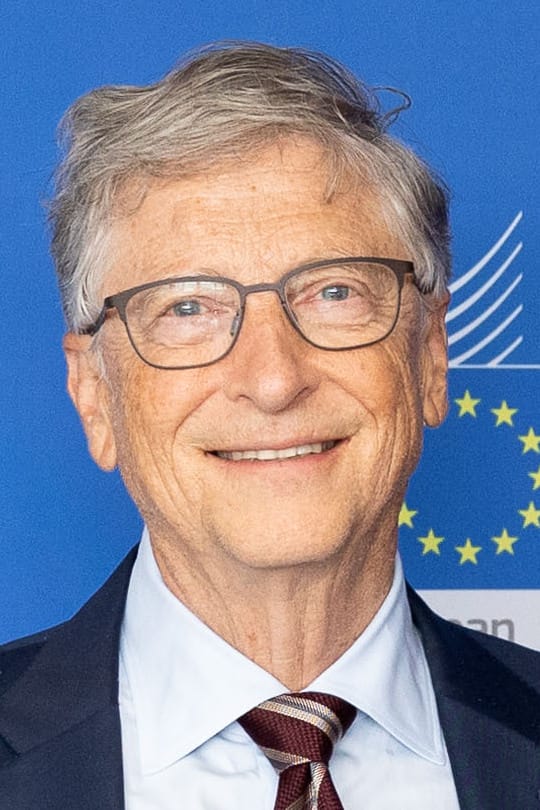
Bill Gates is an American businessman and philanthropist who co-founded Microsoft, the world's largest software company.
Born in 1955 in Seattle, Gates has led Microsoft since its creation in 1975, revolutionizing the technology industry with the Windows operating system.
After leaving Microsoft, he dedicated himself to philanthropy through the Bill and Melinda Gates Foundation, focusing on global health, education and poverty reduction. He is one of the richest and most influential people in the world.
Bill Gates co-founded Microsoft and, as well as amassing a huge fortune, is known for his philanthropic initiatives.
His story teaches us that success is not just about accumulating wealth, but also about giving back to society.
Gates' vision for the future of technology and his contribution to global health are lessons in social impact and innovation.
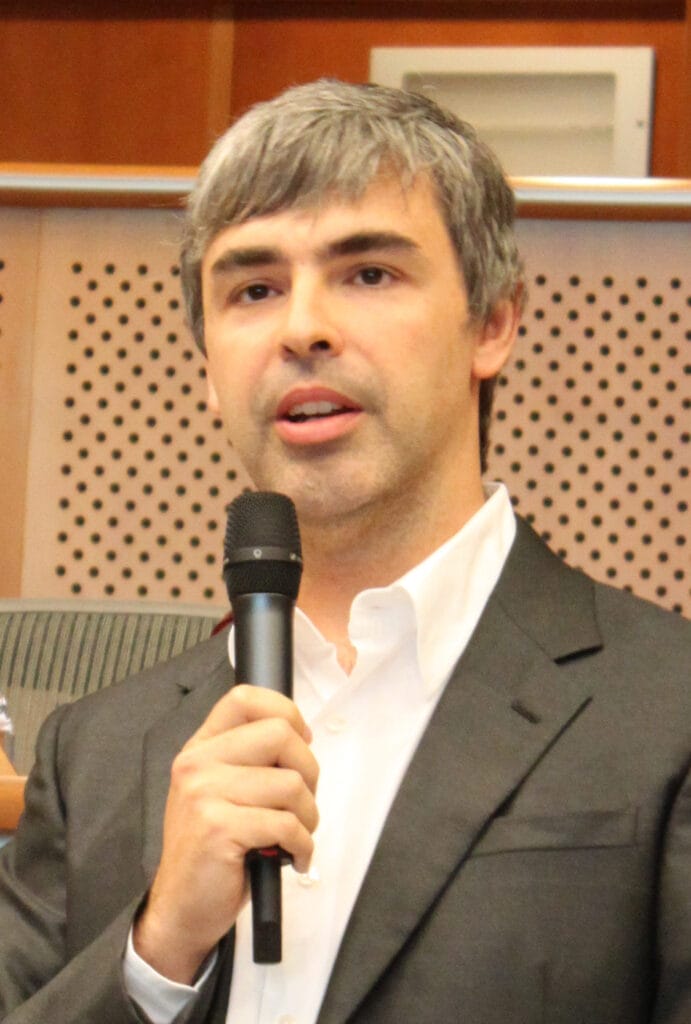
Larry Page is an American businessman and co-founder of Google, the largest internet search platform.
Born in 1973 in Michigan, Page founded Google in 1998 together with Sergey Brin while he was a student at Stanford.
He has played a key role in the development and growth of the company, which has expanded into other areas such as digital advertising, artificial intelligence and devices.
Page was also CEO of Alphabet, Google's parent company, and remains an important figure in the technology sector.
Larry Page, co-founder of Google, teaches us about the importance of curiosity and constant innovation.
Google has revolutionized the way we search for and access information, showing how a simple but revolutionary idea can change the world.
Page's lesson is to constantly seek new solutions to existing problems.
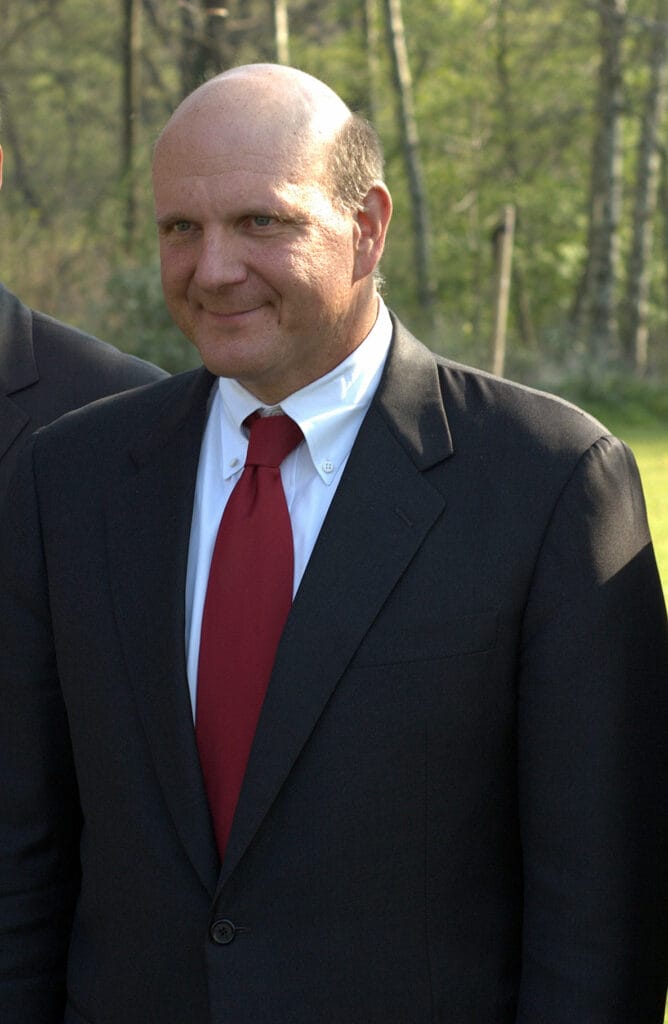
Steve Ballmer is an American businessman and former CEO of Microsoft.
Born in 1956 in Detroit, Ballmer joined Microsoft in 1980 and became CEO in 2000, succeeding Bill Gates.
Under his leadership, the company underwent major changes, including the launch of Windows XP and a focus on corporate software and services.
After leaving Microsoft in 2014, Ballmer acquired the Los Angeles Clippers basketball team. He is known for his infectious energy and leadership style.
Steve Ballmer, former CEO of Microsoft, is an example of energetic and focused leadership.
His management style emphasizes the importance of passion in what you do and how this energy can be used to inspire teams and achieve great goals.
Ballmer also shows how adapting to the market is essential for continuous growth.
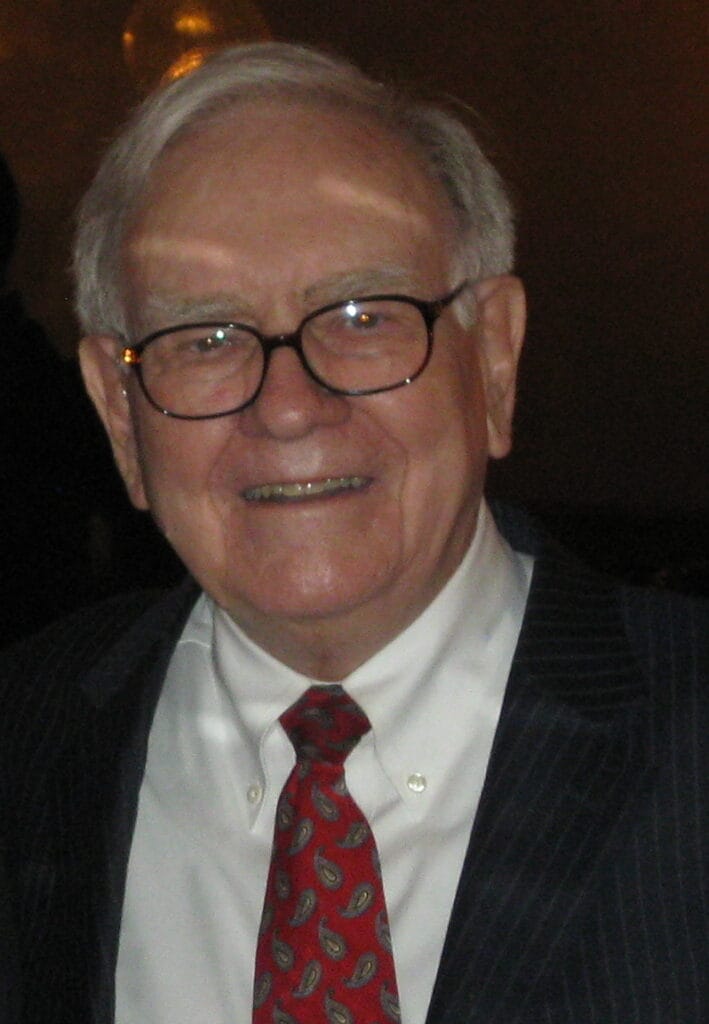
Warren Buffett is an American businessman and investor, considered one of the greatest investors of all time.
Born in 1930 in Omaha, Buffett is the chairman and CEO of Berkshire Hathaway, a holding company that controls companies such as Geico, Dairy Queen and See's Candies.
Known for his long-term investment approach and simple lifestyle, Buffett is widely respected for his financial wisdom and philanthropy, having promised to donate a large part of his fortune to social causes.
Warren Buffett, known as the "Oracle of Omaha", built his fortune through smart investments and personality.
Its investment philosophy is based on buying solid companies and holding on to them for many years, a strategy that emphasizes the importance of detailed analysis and making calculated decisions.
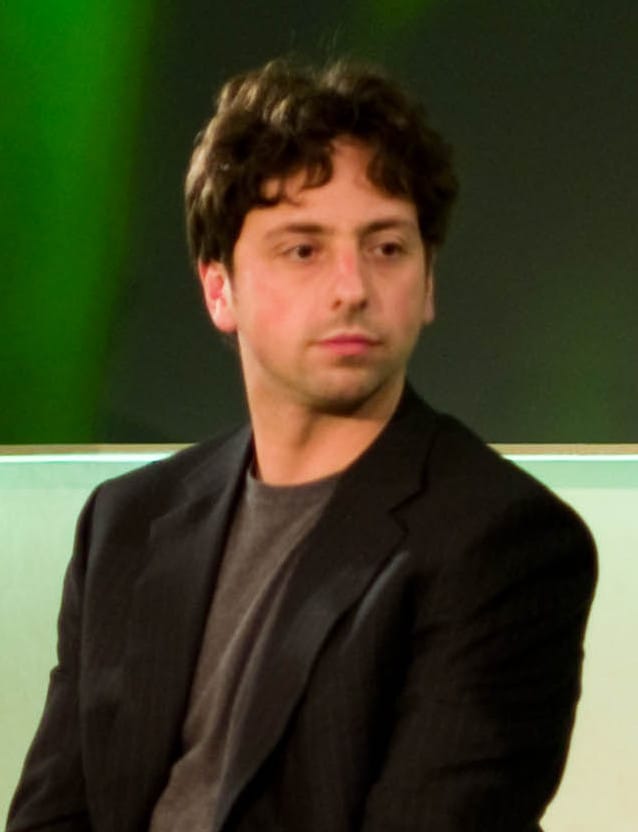
Sergey Brin is an American businessman who co-founded Google with Larry Page.
Born in Russia in 1973, Brin immigrated to the United States as a child. Together with Page, he created Google in 1998 while studying at Stanford University.
Brin played a crucial role in the company's development and, after the creation of Alphabet, he became its chief technology officer.
In addition to his contributions to technological innovation, Brin also invests in areas such as artificial intelligence and biotechnology.
Sergey Brin, co-founder of Google, teaches us the importance of collaborating with other committed minds to create something that can impact millions of lives.
His innovative approach to business and technology inspires us not to be afraid of challenges and to seek solutions that improve society.
The richest woman in the world is Alice Walton, heiress to the Walmart empire, the largest global retail chain. Daughter of Sam Walton, founder of the company.
Alice dedicated a large part of her life to activities related to art and philanthropy, choosing not to follow the family business directly.
Below is a list of the 10 richest women in the world.
| Name (Company) | Fortune ($ billion) | Country |
|---|---|---|
| Alice Walton (Walmart) | 115 | United States |
| Francoise Bettencourt Meyers (L'Oréal) | 77,2 | France |
| Julia Flesher Koch & Family (Koch Industries) | 74,7 | United States |
| Jacqueline Badger Mars (Mars, Inc.) | 44,2 | United States |
| Abigail Johnson (Fidelity Investments) | 41,0 | United States |
| MacKenzie Scott (Amazon) | 39,7 | United States |
| Miriam Adelson (Las Vegas Sands) | 34,7 | United States |
| Iris Fontbona & Familia (Antofagasta Plc) | 31,6 | Chile |
| Susanne Klatten (BMW, Altana) | 25,6 | Germany |
| Elaine Marshall (Koch Industries) | 25,4 | United States |
| Savitri Jindal (OP Jindal Group) | 28,2 | India |
Source: Bloomberg Billionaires Index (December/2024).
The richest Brazilian in the world is Eduardo Saverin, co-founder of Meta, the company responsible for Facebook. According to a 2022 report, Saverin owns around 5% of the company.
Here is the full list of richest Brazilians in the world:
| Name | Fortune (US$ billion) | Company/Affiliation |
|---|---|---|
| Eduardo Saverin | 36,5 | Meta (Facebook) |
| Jorge Paulo Lemann | 23,2 | AB InBev, 3G Capital |
| Marcel Telles | 10,4 | AB InBev, 3G Capital |
| André Esteves | 8,04 | BTG Pactual |
| Carlos Sicupira | 7,86 | AB InBev, 3G Capital |
| Pedro Moreira Salles | 6,85 | Itaú Unibanco |
| Fernando Moreira Salles | 6,83 | Itaú Unibanco |
Source: Bloomberg Billionaires Index (December/2024).
This is a complex issue, as the concept of "being rich" can vary depending on the country and the perspective of the person doing it.
For simplicity's sake, let's consider the Brazilian scenario. According to data from FGV Social, anyone with an average personal income of R$ 27,000 per month and assets of R$ 4.6 million already belongs to the select group of the 1% richest people in the country.
To better understand what it means to be rich in Brazil, check out some data from FGV Social:
| Share of the population | Heritage |
|---|---|
| 1% | R$ 4.6 million |
| 0,1% | R$ 26.2 million |
| 0,01% | R$ 151.5 million |
Source: FGV Social.
According to the latest updates from Forbes, Elon Musk topped the list of the richest men at the beginning of 2025, with an impressive fortune.
Technology continues to dominate, and great tycoons such as Jeff Bezos and Larry Ellison also stand out. Let's explore more about the wealth landscape in 2025.
Elon Musk remains at the top, with an estimated fortune of US$ 349 billion.
His ability to lead companies in renewable energy, space technology and electric cars makes him one of the most influential figures in the world.
They top the ranking, which is dominated by tycoons from the technology sector and American men.
The three tycoons topped the Forbes ranking, with the technology sector standing out as the main source of wealth.
The rise of Musk, Bezos and Ellison reflects the impact of technological innovations on a global scale.
Billionaires don't only accumulate wealth because of their successful companies, but also because of the way they invest and protect their assets.
From stocks to real estate and philanthropic investments, the world's greatest investors take smart and diverse approaches to maximizing their money.
Many billionaires, such as Mark Zuckerberg and Jeff Bezos, began by investing in promising startups.
The risk may be high, but so is the return. Learning to identify emerging companies with great growth potential is a crucial skill for anyone who wants to follow the example of the great investors.
Investing in real estate, also known as Fiis, is a strategy that many billionaires adopt to protect and diversify their portfolio.
Luxury real estate, commercial properties and strategic land are valuable assets with great potential for appreciation over time.
Bill Gates, Warren Buffett and other tycoons are dedicating a significant part of their fortunes to philanthropic causes through their foundations.
This not only helps to improve society, but also provides tax benefits and strengthens the public image of these entrepreneurs.
Many billionaires put together their thoughts on how to achieve success.
Let's highlight some of your most ecological obligations.
Bill Gates emphasizes that success can be deceptive. Humility and learning from mistakes are essential if you want to keep growing.
Zuckerberg stresses the importance of taking risks and getting out of your comfort zone. Success is reserved for those willing to face challenges and learn from failures.
Steve Jobs has always been known for his revolutionary vision. He teaches us the importance of originality and innovation, rather than following the path of others.
Although each billionaire has a unique trajectory, there are some keys to success that can be applied to anyone.
Here are some practical tips to get you started on your own path to financial success.
For large financial deals, you need a well-structured business plan.
Most billionaires start with a clear vision of their goal, accompanied by a detailed plan of how to get there.
Successful entrepreneurs like Elon Musk and Jeff Bezos are known for their calculated risks.
They invested everything they had in their dreams, even when the path seemed wrong.
Taking risks is an essential part of any entrepreneurial journey, but always strategically.
Another crucial point is to think in the long term.
Most billionaires don't seek immediate profit, but have built a legacy that can last for generations.
So think ahead, reinvest in your business and focus on constant growth.
Although the path to wealth is unique to each individual, there are some universal principles that can increase your chances of success.
Be persistent, stay motivated and be willing to learn from the best.
Understanding how money works and knowing how to manage your finances are the foundations for building wealth.
Financial education is crucial because it gives you the tools to make smart choices about your money.
Building a solid network of contacts can be key to the growth of your business. Strategic partnerships with the right people can open doors and accelerate your success.
The business world is constantly changing, and billionaires know it.
Keeping up to date with the latest trends and looking for innovative solutions are fundamental steps for those who want to reach the top.
Now we're going to cover a few points that can help you on your journey up the ladder and build wealth that goes far beyond having a rich life.
Investing and saving are essential steps to guaranteeing a financially secure future.
By learning from the world's richest men, you can apply their strategies in your own life to achieve financial independence.
Start with simple steps, such as creating a budget and setting clear financial goals.
You can buy biographies of billionaires in various online and physical bookstores.
Many of these stories offer important insights into how these tycoons got to the top and the lessons they can apply to your life.
Platforms such as Amazon, Barnes & Noble and bookstores specializing in non-fiction offer a wide selection of books about the world's richest men.
Explore options such as "Elon Musk: How the billionaire CEO of SpaceX and Tesla is shaping the future" and "Shoe Dog", about the story of Phil Knight.
The book "Elon Musk: The Man Who Is Planning the Future" by Ashlee Vance offers a fascinating insight into Musk.
Another popular title is "Steve Jobs' Journey", which explores the life of the co-founder of Apple, one of the greatest visionaries of the 21st century.
Stores like Amazon, Saraiva, Livraria Cultura and Fnac offer a wide range of books about millionaires and billionaires.
If you're looking for successful titles and biographies of great entrepreneurs, these platforms are excellent starting points.
Documentaries about billionaires can vary in price depending on the streaming platform you want and the content they offer.
Netflix, HBO Max and Amazon Prime have exclusive productions that explore the lives and careers of figures such as Bill Gates, Steve Jobs and other tycoons.
To follow the list of the world's richest people, simply subscribe to Forbes magazine online.
The magazine offers full access to its digital version, which provides monthly updates on the fortunes of billionaires.
Finance courses inspired by the methods of the richest men can be found on platforms such as Hotmart, Eduzz, Monetizze, Coursera and Udemy.
Look for courses focused on investments, risk management and wealth creation strategies, and don't forget to look at the evaluations of those who have already taken the course to get a good experience.
Several platforms offer investment and finance courses.
Sites such as Hotmart, Eduzz, Monetizze, MasterClass, Coursera and Udemy have courses taught by successful investors or focused on strategies that these billionaires apply in their careers.
The prices of investment courses can vary according to the platform and the content.
You can find affordable options that start at around R$ 100, with shallower and more basic content for beginners, but there are also more advanced courses that can cost up to R$ 20,000 or more.
Online bookstores such as Amazon and Submarino often offer promotions and discounts on books about billionaires.
What's more, during holidays such as Black Friday, you can find incredible offers.
Look out for sites like Couponation and Méliuz, which are more popular and offer discount coupons for books and products related to billionaire biographies.
These platforms can help you save money when buying books from big businessmen.
Some of the main sites that offer discount coupons in Brazil are:
Platforms such as TED Talks, YouTube and MasterClass are great places to find talks by billionaires.
In addition, many of them take part in conferences that can be watched online.
The main biographies of billionaires can be found in physical and digital bookstores.
Books such as "Steve Jobs" by Walter Isaacson and "Elon Musk" by Ashlee Vance are indispensable for those who want to learn more about the success stories of these men.
Books like "The Richest Man in Babylon", "Rich Dad, Poor Dad" and "Shoe Dog" are very popular.
They offer insights into financial mentality, investment strategies and stories of people who have built empires.
Films such as Mark Zuckerberg's "The Social Network" and Ray Kroc's "The Founder" can be found on streaming platforms such as Netflix, Amazon Prime Video and YouTube.
Some movies and series that can help you learn about money are:
What can we learn from the richest men in the world?
We learned that the trajectory of the world's richest men is marked by courage, a vision of the future and a mindset of continuous growth.
By adopting some of these strategies and applying the teachings of these giants of the business world, you too can be on your way to achieving your own financial goals.
Here you'll find answers to the most common questions about the world's richest men, their business strategies and how to apply these lessons to your financial life.
Women also occupy prominent positions in the lists of billionaires, with figures such as Françoise Bettencourt Meyers (L'Oréal) and Alice Walton (Walmart) standing out. Let's explore more about their trajectories and lessons.
Currently
United States leads the global ranking with the highest number of billionaires. The country is home to some of the world's biggest fortunes, with tech moguls such as Elon Musk and Jeff Bezos standing out. The robust economy and innovation ecosystem are behind the steady rise in the number of billionaires in the country.
Being rich in Brazil is relative, depending on the economic and social context. In financial terms, the upper class generally has a substantial income, large properties and diversified investments. However, the economic inequalities in the country mean that the perception of wealth varies greatly. Having a fortune of more than R$ 10 million is considered a great asset in Brazil.
The title of "richest man of all time" is often attributed to
Mansa Musa I Emperor of the Mali Empire in the 14th century. His wealth was so immense that it became borrowed. During his famous trip to Mecca, he distributed so much gold that it caused a temporary inflation in the regions he passed through. It is estimated that his fortune was equivalent to trillions of dollars today.
So far, there are no
trillionaire in the world. Although some people, such as Elon Musk and Jeff Bezos, have reached fortunes close to 300 billion dollars, a mark of 1 trillion dollars has yet to be reached by any human being. The idea of a trillionaire is fascinating, but it's still far from reality.
The richest Brazilian in the world is Eduardo Saverin, co-founder of Meta, the company responsible for Facebook. According to a 2022 report, Saverin owns around 5% of the company.